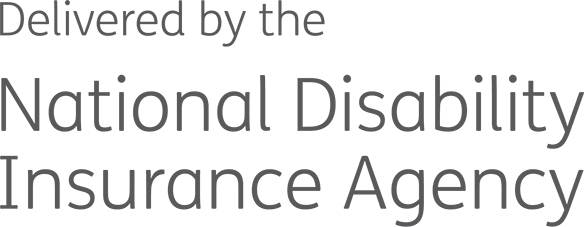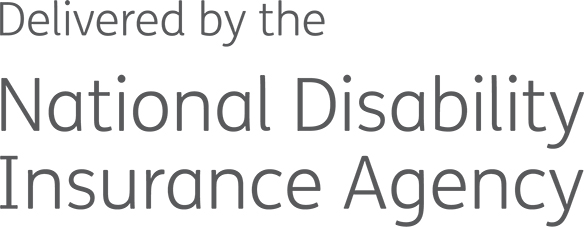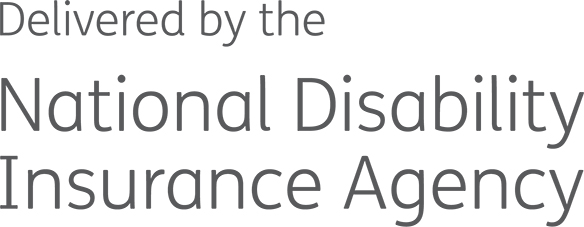
 Our reference:
Our reference: FOI 25/26-0021
GPO Box 700
Canberra ACT 2601
1800 800 110
5 August 2025
ndis.gov.au
Stuart
Right to Know
By email: xxxxxxxxxxxxxxxxxxxxxxxxxx@xxxxxxxxxxx.xxx.xx
Dear Stuart
Freedom of Information request — Notice of Decision
Thank you for your correspondence of 2 July 2025
(your correspondence), seeking access
under the
Freedom of Information Act 1982 (FOI Act) to documents held by the National
Disability Insurance Agency
(NDIA).
The purpose of this letter is to provide you with a decision on your request.
Scope of your request
You have requested access to the following documents:
“…Please provide the following figures for:
• FY 2023-24 Q3 (1 January 2024 31 March 2024)
• FY 2023-24 Q4 (1 April 2024 30 June 2024)
• FY 2024-25 Q1 (1 July 2024 30 September 2024)
• FY 2024-25 Q2 (1 October 2024 31 December 2024)
• FY 2024-25 Q3 (1 January 2025 31 March 2025)
• FY 2024-25 Q4 (1 April 2025 30 June 2025)
1. The number of persons who made an access request during the quarter...”
Processing Timeframes
The FOI Act provides 30 calendar days for the processing of an FOI request after it is
received. As your valid FOI request was received on 2 July 2025, the original due date for
your request was 1 August 2025.
1
On 4 July 2025, the FOI Team wrote to you requesting your agreement to a 30-day
extension of time under section 15AA of the FOI Act. As we did not receive a response from
you, the original due date still stands.
As we were unable to provide you with a decision on your request by the legislated due date,
your application is regarded as a deemed refusal under section 15AC of the FOI Act.
Despite this, I have continued to process your application. I apologise for the delay and
confirm that you retain your right to seek external review of this decision. Details are set out
in
Attachment B to this letter.
Searches conducted
Searches were conducted by the Analytics, Data and Actuarial Division (ADA) for documents
relevant to the scope of your FOI request.
As a result of this search, I was advised that no documents were located in discrete form in
response to your scope, this search was undertaken between 8 July and 29 July 2025 and
was overseen by senior staff.
Section 17(1)(c) of the FOI Act provides that an agency can produce a written document
containing the requested information, by the use of a computer or other equipment that is
ordinarily available for retrieving or collating stored information. I have, therefore, treated
your request as if it were a request for access to this document in accordance with section
17(1)(c) of the FOI Act.
ADA have also advised that they are unable to generate a document pursuant to section 17
of the FOI Act.
Decision
I am the authorised officer pursuant to section 23(1) of the FOI Act to make a decision on
this FOI request.
In this instance, the NDIA is unable to produce a document under section 17(1)(c) and has
been unable to locate documents relevant to the scope of your request.
In summary, I have decided to refuse access to the information you have requested on the
basis that the documents to not exist or cannot be located pursuant to section 24A of the
FOI Act.
2

A detailed statement of reasons explaining my decision is
Attachment A to this notice.
Rights of review
Your rights to seek a review of my decision, or lodge a complaint, are set out at
Attachment B.
Should you have any enquiries concerning this matter, please do not hesitate to contact me
by email at xxx@xxxx.xxx.xx.
Yours sincerely
Patrick (PHO293) Senior Freedom of Information Officer
Information Release, Privacy and Legal Operations Branch
Reviews and Information Release Division
3
 Attachment A
Statement of Reasons
FOI 25/26-0021
_________________________________________________________________________
REFUSAL UNDER 24A
Attachment A
Statement of Reasons
FOI 25/26-0021
_________________________________________________________________________
REFUSAL UNDER 24A
I have refused access to the information you requested under section 24A of the FOI Act on
the basis that documents are unlocatable or do not exist.
Relevant Law
Under the FOI Act, a person has a right to be given access to documents of an agency.
However, the right of access is subject to limitations, including grounds for refusal of access.
Section 24A of the FOI Act states that an agency may refuse a request for access to a
document if all reasonable steps have been taken to find the document and the agency is
satisfied that the document cannot be found or does not exist.
Reasons for Decision
The right of access under the FOI Act is to documents in possession of an agency, rather than
to information. The FOI Act does not require an agency to create a new document in response
to a request for access, except in limited circumstances where the applicant seeks access in
a different format or where the information is stored in an agency computer system rather than
in discrete form.1
The limited circumstances in which an agency may be required to create a new document
include those contemplated by section 17 of the FOI Act. Section 17(1)(c)(i) of the FOI Act
requires an agency to produce a written document if it can be produced by using a ‘computer
or other equipment that is ordinarily available’ to the agency for retrieving or collating stored
information.
Whether a computer or other equipment is or other equipment is ordinarily available will
depend upon the facts of the particular case, which may include whether ‘access to it would
involve a departure from the agency’s ordinary or usual conduct and operations.2
Paragraph 3.213 of the FOI Guidelines states that the reference in section 17(1)(c)(i) to a
‘computer or other equipment that is ordinarily available’ means ‘a functioning computer
system including software, that can produce the requested document without the aid of
1 FOI Guidelines 2.33.
2 Collection Point Pty Ltd v Commissioner of Taxation [2013] FCAFC 67 [48]
4
additional components which are not themselves ordinarily available … [T]he computer or
other equipment … must be capable of functioning independently to collate or retrieve stored
information and to produce the requested document.’3
In an Information Commissioner decision,
Ryan Turner and Department of Home Affairs4 the
applicant sought access to information which the Department would need to produce,
including by writing new computer code, as existing reporting products did not enable it to
generate the requested data.
The Information Commissioner accepted that the tasks required to produce the requested
data extended beyond a simple or routine database query task and involved the design and
drafting of new code to extract and manipulate data held on existing databases into the form
and content sought by the applicant5.
After reviewing the scope of your request, I identified the need to make enquiries with the
NDIA’s Analytics, Data and Actuarial Branch (ADA) to enquire if a document could be
created pursuant to section 17 of the FOI Act.
I note, in the past you have requested the total number of access requests received by the
agency which has been provided to you. Your current request is different in that it is asking
for the number of persons who have made access requests within relevant timeframes. ADA
have advised that they do not have the required ‘logic’ to generate this data. By logic, I mean
code that is needed to output an accurate response when run on our databases.
Additionally, we were advised that the quality of the raw data was not sufficient enough to
produce an accurate response to your request. The agency does not report on the number
of people who made access requests because of these issues which also explains why no
logic is available, as the data issues need to be fixed before logic is created.
I have also consulted with the Scheme Eligibility Branch who have confirmed that they do
not produce reports that would collect individual data per applicant, and therefore they do not
store raw data for persons applying for access and would not be able to determine the
breakdown of multiple access requests from an applicant.
3 FOI Guidelines 3.213
4 Ryan Turner and Department of Home Affairs (Freedom of information) [2022] AICmr 63 (6 September 2022).
5 Ryan Turner and Department of Home Affairs (Freedom of information) [2022] AICmr 63 (6 September 2022)
5
As such, I am satisfied that the document to which you seek access to currently does not exist
and would require data issues to be resolved an additional data manipulation via writing of
computer code to create a document. I am satisfied that the obligation to produce a document
under section 17 of the FOI Act does not apply.
For these reasons, I consider there are reasonable grounds to be satisfied that the
documents do not exist, and I therefore refuse access to the document pursuant to section
24A of the FOI Act on the basis that it does not exist
6
 Attachment B
Your review rights
Attachment B
Your review rights
As this matter was a deemed refusal, internal review of this decision is not an option.
However, if you have concern with any aspect of this decision, please contact the NDIA FOI
team by email xxx@xxxx.xxx.xx or by post:
Freedom of Information Section
Complaints Management & FOI Branch
General Counsel Division
National Disability Insurance Agency
GPO Box 700
CANBERRA ACT 2601
Review by the Office of the Australian Information Commissioner
The FOI Act gives you the right to apply to the Office of the Australian Information
Commissioner (OAIC) to seek a review of this decision.
If you wish to have the decision reviewed by the OAIC, you may apply for the review, in
writing, or by using the online merits review form available on the OAIC’s website at
www.oaic.gov.au, within 60 days of receipt of this letter.
Applications for review can be lodged with the OAIC in the following ways:
Online: www.oaic.gov.au
Post: GPO Box 5218, Sydney NSW 2001
Email: xxxxxxxxx@xxxx.xxx.xx
Phone: 1300 363 992 (local call charge)
Complaints to the Office of the Australian Information Commissioner or the
Commonwealth Ombudsman
You may complain to either the Commonwealth Ombudsman or the OAIC about actions
taken by the NDIA in relation to your request. The Ombudsman will consult with the OAIC
before investigating a complaint about the handling of an FOI request.
Your complaint to the OAIC can be directed to the contact details identified above. Your
complaint to the Ombudsman can be directed to:
Phone: 1300 362 072 (local call charge)
Email: xxxxxxxxx@xxxxxxxxx.xxx.xx
Your complaint should be in writing and should set out the grounds on which it is considered
that the actions taken in relation to the request should be investigated.
7




